The greatest cycling books of all time: the top five
Concluding our countdown of the best cycling books ever written.
The greatest 50 cycling books of all time: 50-41
The greatest 50 cycling books of all time: 40-31
The greatest 50 cycling books of all time: 30-21
The greatest 50 cycling books of all time: 20-11
The greatest 50 cycling books of all time: 10-6
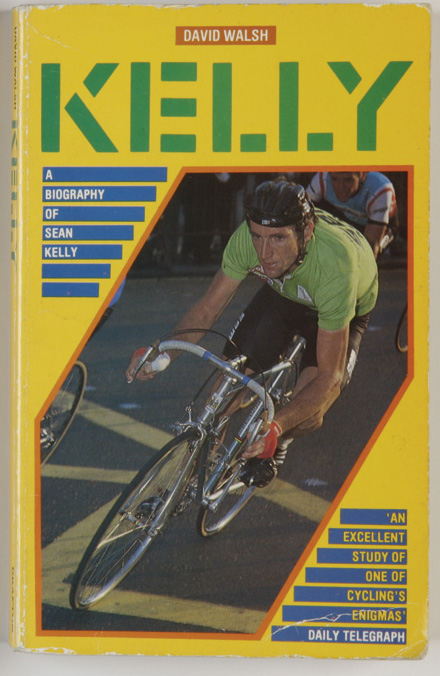
5. Kelly – A Biography of Sean Kelly
Get The Leadout Newsletter
The latest race content, interviews, features, reviews and expert buying guides, direct to your inbox!
David Walsh, 1986
In 1984, David Walsh travelled to Paris to cover a full season of professional cycling, pinning his hopes on Kelly winning. This is a conventional biography, charting the success of a rider who was on the way to the very summit of the sport but it is charmingly written. Walsh’s direct, incisive style takes you to the heart of the milleu and, without realising it, you are learning about how professional cycling is layered. You also get an insight into Kelly, at the time almost monosyllabic in his expression, and are left with an impression of a tough man doing a tough job very well. Most people associate David Walsh with the Lance Armstrong stories, but that is to forget that he’s one of the best writers ever to have covered cycling.
They asked what he thought of the snow and rain. “Paris-Roubaix without rain,” Kelly said “is not a true Paris-Roubaix.”
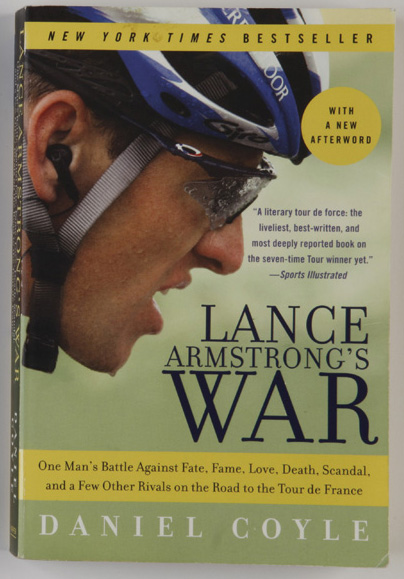
4. Lance Armstrong’s War
Dan Coyle, 2005
Dan Coyle came at cycling and the Lance Armstrong story from the outside. With keen observational skills and original, accessible prose, Coyle managed to ‘get’ Lance Armstrong in a way that cycling journalists rarely did, or were allowed to. Events have moved on, making some anecdotes seem dated, but the quality of the storytelling make this an essential part of the Lance Armstrong canon.
Over the simmering haze, screaming eastward at five hundred miles an hour, came a silvery white Gulfstream aircraft with its wings turned up at their tips like a fighter jet. Inside its sleek cocoon, Lance Armstrong was peering down into the mist, trying to spot the trolls.
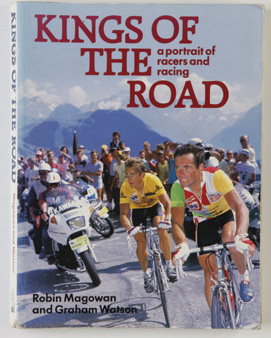
3. Kings of the Road
Robin Magowan, 1987
Illustrated with Graham Watson’s photography, this poetically-written account of the world of cycling came on the cusp of Anglophone countries discovering the sport anew.
Bicycle racing differs from every other sport I know in being the only one to have been created by writers. Imagine a sport that sprawls for days, weeks, maybe almost a month, over a sizable stretch of countryside, where the main action takes place far from where most people live, a race in which the only real witness is the landscape and you begin to understand how a deliberately created epic sport came into being – one that from the first invited comparison with The Iliad, The Voyage of the Argonauts or the Song of Roland.
Edward Pickering on Kings of the Road
Kings of the Road was the first cycling book I ever owned, and even more than the nightly Channel 4 coverage of the Tour de France in the mid 1980s, it got me hooked on the sport.
The photography, all by Graham Watson, is stunning. I remember gazing at the veins on Lucien Van Impe’s legs, at the deeply-etched lines on Sean Kelly and Joop Zoetemelk’s faces, at the fresh face and blond hair of Greg LeMond, then a one-time Tour winner, and realising that no other fans got this close to their sport’s protagonists.
But the writing is what stands out for me. Magowan’s words are like poetry, and in my opinion nobody else has written this well about the sport, aesthetically.
He’s also got a deep understanding of the rhythms of the cycling seasons – he doesn't just cover the Tour, but describes the Classics and other Tours, at a time when to the public at large, there was only one bike race in existence. The mini-chapters on the stars of the sport – Hinault, LeMond, Millar, Roche and Anderson, to name a few - are only a few thousand words long, but absolutely nail their personalities.
I’ve still got my original copy of Kings of the Road. A couple of pages aren’t really fixed in any more, and it’s looking a bit dog-eared. It sits on my desk at the Cycle Sport office, partly so I can reach out and leaf through it whenever I feel like it, but mostly as a reminder of where it all began for me.
Edward Pickering is deputy editor of Cycle Sport.
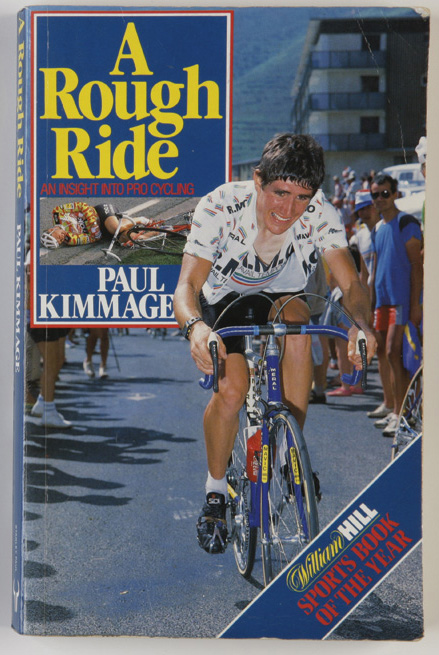
2. A Rough Ride
Paul Kimmage, 1990
Paul Kimmage wrote about his life as a professional cycling, an experience akin to pulling back the curtain and glimpsing the puppeteer at work. The crumbling of Kimmage’s dream, the lowering of his expectations to mere survival are the real story in this book but it is the story of widespread doping that made this controversial. It was almost cycling’s equivalent of The Satanic Verses and Kimmage was its Rushdie. He was criticised for spitting in the soup but eight years later the Festina Affair showed the consequences of allowing such rampant pursuit of self-interest to go unchecked.
On seeing me arrive at the hotel, my team-mates started laughing at my briefcase. “Ah Paul, the briefcase, you’re a real warrior alright.” I hadn’t got a clue what they were talking about. On visiting the riders’ rooms that night I noticed that many had briefcases. But whereas mine contained my passport and letters and writing materials, theirs contained pills, syringes and little bottles of liquid of every colour and shape.
Ellis Bacon on A Rough Ride
Paul Kimmage’s A Rough Ride was always a good book. A must-read for fans of professional cycling upon its 1990 publication, it then became absolutely essential reading following the 1998 Festina affair because, well, who would have thought it – Kimmage had been telling the truth about drug-use in the sport all along.
It’s hard to remember what my feelings were when I read it for the first time. Kimmage conveyed a burgeoning love for the sport, which subsequently waned once he discovered what life as a professional rider was really like, ending in a deep hatred for the seedier side of cycling – the people involved, the bullying, the drugs.
In a lot of ways, Rough Ride helped make the decision for me that I didn’t really want to be a pro cyclist – even if I had been good enough. But it’s a book I wouldn’t have been without as I devoured all the cycling magazines and books, and watched all the television, that I could. I suppose I thought that the bad guys Kimmage described were few and far between. That’s still the way people like to think, I suppose, too.
The Festina affair certainly went a long way to waking people up – we know that now – and for me Kimmage’s book changed to read more like a warning from history whenever I read it post-’98. I must have read it a good half-dozen times over the years; quite possibly the only book I’ve ever re-read, in fact.
I still find it strange, though, that this book didn’t put me, or others, off the sport completely. It might have something to do with the passion for cycling that Kimmage retains throughout the book, despite how dark some of his days become, culminating in his retirement to take up a new life as a journalist. No – I didn’t need to be a pro to enjoy the sport. Neither, it turns out, did Kimmage. He still writes like that today, in his pieces for The Sunday Times, where his experience, that same passion and a desire for a clean sport shine through.
It truly is essential reading, this – a book that holds up today, as the banter, bullying and hardships of life as a pro are as applicable as ever. The 1990 William Hill Sports Book of the Year has been updated a couple of times along the way, even losing the ‘A’ from its title somewhere along the line. Today’s cover of a grimacing Kimmage in his final year as a pro with Fagor was preceded by a shocking – in both respects – minimalist yellow cover, but my favourite will always be the original – the one I own – of a pained, almost crying, Kimmage giving it everything at the Tour de France on what looks like Alpe d’Huez – a mountain to climb. It kind of summed – still sums – it all up, really.
Ellis Bacon writes for Cycle Sport
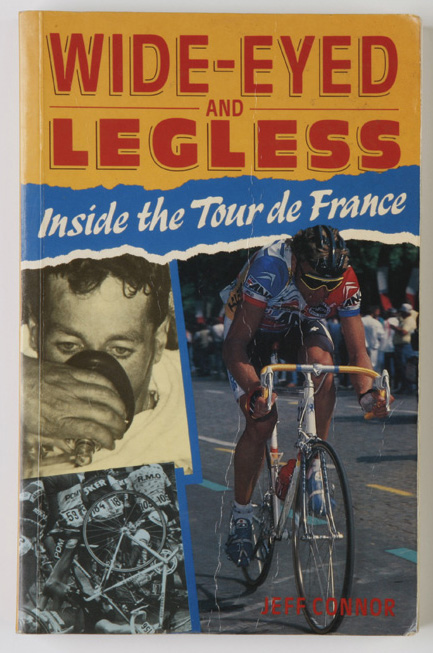
1. Wide Eyed and Legless
Jeff Connor, 1988
The story of the ANC-Halfords team at the 1987 Tour de France. The British squad were out of their depth but Connor’s documentary account does not poke fun or seek to humiliate. Instead it makes you feel like you’re there with them, suffering and biting your lip.
By now ANC’s Tour de France was beginning to resemble a huge family outing. Fisher – Fish Face as Snowling [the mechanic] has uncharitably christened him – had arrived back from Paris with his wife, a tiny, aggressive and faded blonde… and their poodle. There was also by now Mrs Capper, a large lady perspiring in her summer frock and two teenage Capper sons, who immediately donned official team jerseys and expensive riders’ sunshades. Fisher’s poodle was in a bad way, having been left in the family Rover in the heat in Avignon and it didn’t survive the day, Nick Rawling burying it in the hotel garden. Two lively children scuttling round the hotel and sitting with the riders at meals didn’t go down too well either.
Jeff Connor on writing Wide Eyed and Legless
I was a sub-editor on the Daily Star, not even a reporter. Believe it or not, the Daily Star was a good paper in those days. We were selling about two million a day and we had Murdoch worried. We followed every sport going. I don’t think any of the tabloids bothered with cycling but we sponsored the Milk Race and supplied the podium girls, who were models who did promotional work for the paper, not Page 3 girls, by the way.
I came into the office one day and the sports editor and his deputy were looking at me a bit oddly. They said: “Do you want to go to the Tour de France for a month?” They wanted me to ride one of the stages. It sounds ludicrous now but we had no idea. I’d been into climbing and I’d started running big-time. I was the only one who was reasonably fit while the rest on the desk were smokers and drinkers. These were the days when you smoked at your desk and had five pints at lunch. They picked on someone who would survive.
They fixed up for me to join the British team, ANC-Halfords and travel round with them. When I turned up at the airport, Tony Capper didn’t know anything about it. I think he did but he didn’t want to admit to the riders he’d been involved. I had access that you wouldn’t dream of today. None of the riders were very happy about it, although they didn’t actually complain. I think most of the riders thought they were going to get murdered in France and they didn’t want a journalist there to see it.
I knew nothing about the Tour de France but I knew this was a great story, a great sports story. I was filing for the Star on a daily basis, writing things down with a pen and paper and phoning through to the girl in the office.
After a while, I became one of the boys but they were going through extremely difficult times. They wanted to come home after a stage and have something to eat and talk about anything but cycling. Guys like Shane Sutton, Steve Swart and Malcolm Elliott were happy to talk, to an extent, but Graham Jones wasn’t. I didn’t realise it at the time but he was ill and trying to survive. The last thing he’d have wanted was me hanging around asking daft questions.
I got on well with most of the staff and after a couple of weeks it was like I was part of the team. I was driving a team car to the feed zone and doing errands for them.
When I got home, my wife suggested I write a book. I had to write it in a month and the publisher wasn’t too sure so they wanted to see the bulk of it before they took it. When they read it, they took it straight away.
I wasn’t setting out to get people into the world of cycling. I was on the ground and had access but it could have been any sports team, it’s just that the Tour de France is such an incredible event. I had such joy writing it. I’ve done about nine or ten books since and none of them has been as good or as much fun. It was a gift. There weren’t PR people running around spoiling everything but I do think ANC made a bit of a mistake allowing me to go there. There were some people from the company who turned up and started telling the riders and staff what to do and they were made to look idiots in the book.
Lionel Birnie on Wide Eyed and Legless
The beauty of Wide Eyed and Legless is its simplicity. Connor brings the distilled tabloid journalist’s writing style to an event made for meandering, flowery descriptions. And it is all the better for that. This is journalism, pure and simple. For Connor, the story is the key, and this is a great story, the sort of material a documentary maker would kill for. Connor says what he sees. If something is ridiculous he describes it as ridiculous. When he puts his foot in it, he does not gloss over it. And he’s prepared to admit he was on an even steeper learning curve than the riders.
There are overtones of the First World War in it, although not explicitly brought out. The riders are the brave foot soldiers, just trying to survive. The management are in the trenches with them but painfully aware they are not going over the top with them. And then the team’s sponsors turn up midway through, like generals used to spending the war miles behind the lines in a luxurious chateau. And when they start shouting the odds they are viewed with contempt. Connor views them with contempt too, because by now he is one of the boys, mucking in.
Connor admits he knew next to nothing about the Tour de France before he arrived in West Berlin in July 1987 but it does not show in the book because this is a study of humanity. You get to know the people and their personalities and watch as some cope better than others with the position they find themselves in.
Lionel Birnie writes for Cycle Sport
The greatest 50 cycling books of all time: 50-41
The greatest 50 cycling books of all time: 40-31
The greatest 50 cycling books of all time: 30-21
The greatest 50 cycling books of all time: 20-11
The greatest 50 cycling books of all time: 10-6
This article first appeared in Cycle Sport December 2010
Follow us on Twitter: www.twitter.com/cyclesportmag

Thank you for reading 20 articles this month* Join now for unlimited access
Enjoy your first month for just £1 / $1 / €1
*Read 5 free articles per month without a subscription

Join now for unlimited access
Try first month for just £1 / $1 / €1
Edward Pickering is a writer and journalist, editor of Pro Cycling and previous deputy editor of Cycle Sport. As well as contributing to Cycling Weekly, he has also written for the likes of the New York Times. His book, The Race Against Time, saw him shortlisted for Best New Writer at the British Sports Book Awards. A self-confessed 'fair weather cyclist', Pickering also enjoys running.
-
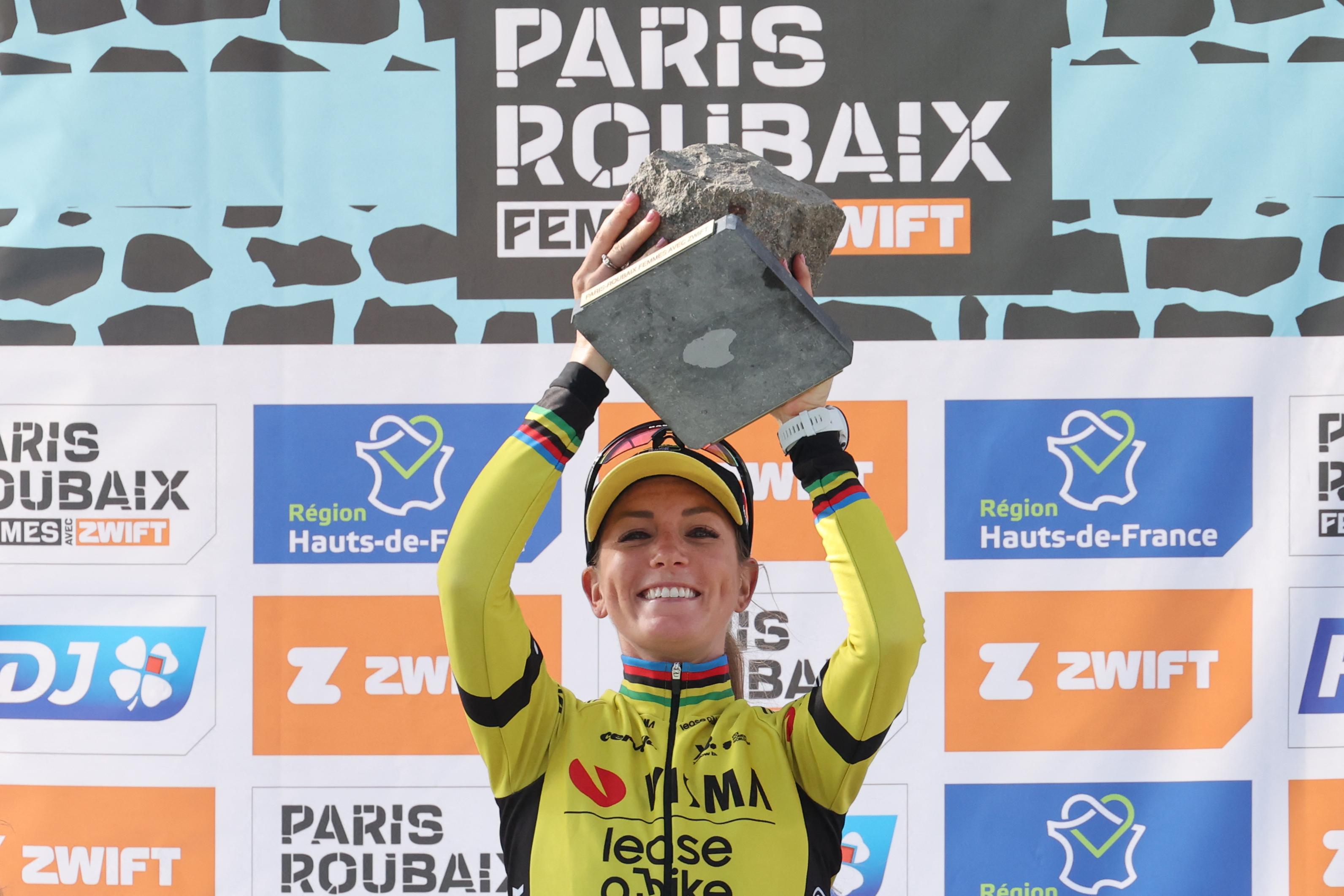 Pauline Ferrand-Prévot: ‘It wasn’t the plan to ride Roubaix but I felt good so I said why not?’
Pauline Ferrand-Prévot: ‘It wasn’t the plan to ride Roubaix but I felt good so I said why not?’Frenchwoman admits that her aim for her unexpected Roubaix debut was to support Visma | Lease a Bike teammate Marianne Vos
By Peter Cossins Published
-
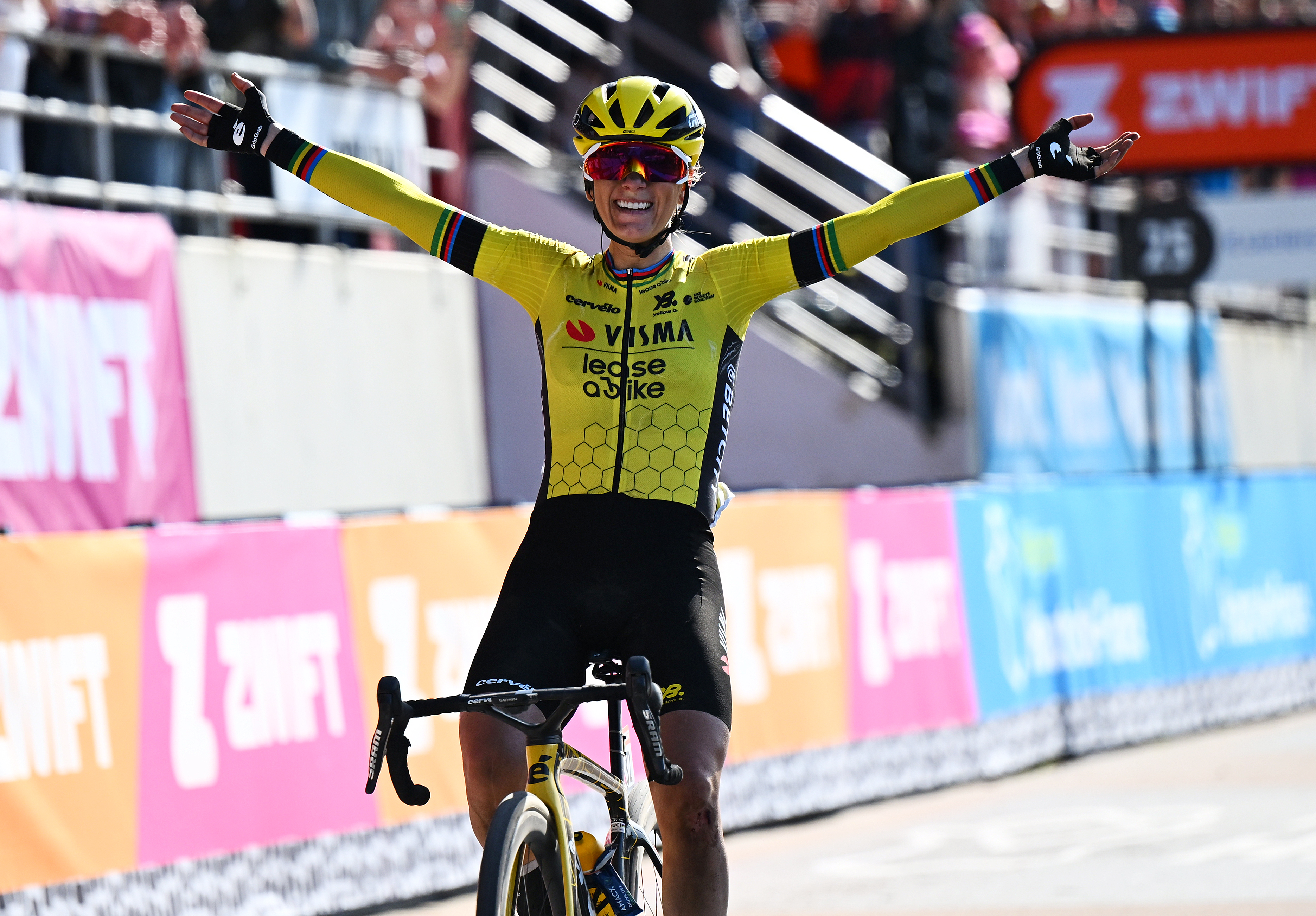 Pauline Ferrand-Prévot takes a sensational home victory in Paris-Roubaix
Pauline Ferrand-Prévot takes a sensational home victory in Paris-RoubaixFrenchwoman wins her Hell of the North debut as Letizia Borghesi takes second place and Lorena Wiebes is third
By Peter Cossins Published
-
 'He’s at the age now where he's coming into his prime' - Where does Tadej Pogačar go next after a year of unequalled domination?
'He’s at the age now where he's coming into his prime' - Where does Tadej Pogačar go next after a year of unequalled domination?Becoming the first male rider since 1987 to complete cycling’s hallowed triple crown earns the Slovenian this year’s prize. Tom Thewlis salutes a spectacular year
By Tom Thewlis Published
-
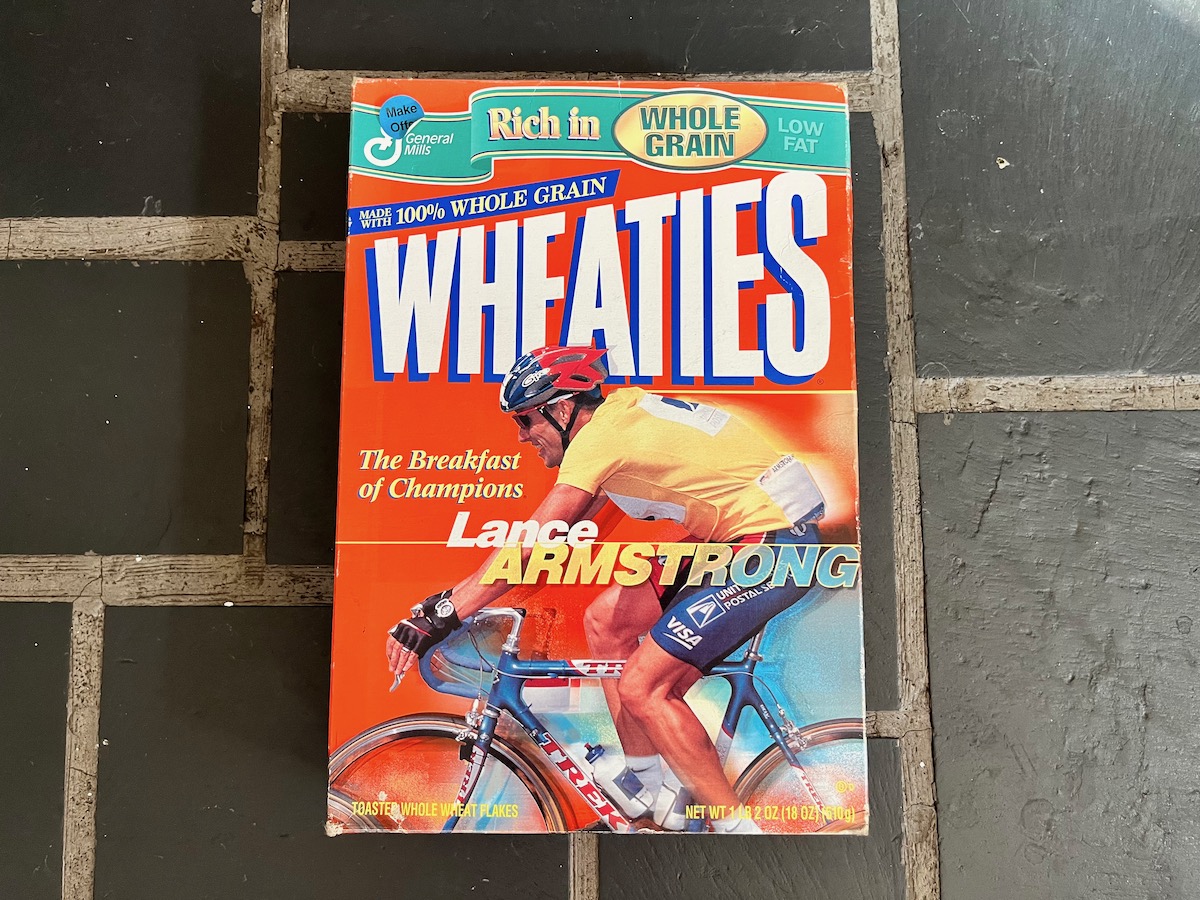 Will another cyclist ever follow Lance Armstrong onto a Wheaties box?
Will another cyclist ever follow Lance Armstrong onto a Wheaties box?USA Cycling is optimistic about the ‘strongest US men’s presence in Europe’ in nearly two decades with contenders for future Tour de France race.
By Anne-Marije Rook Last updated
-
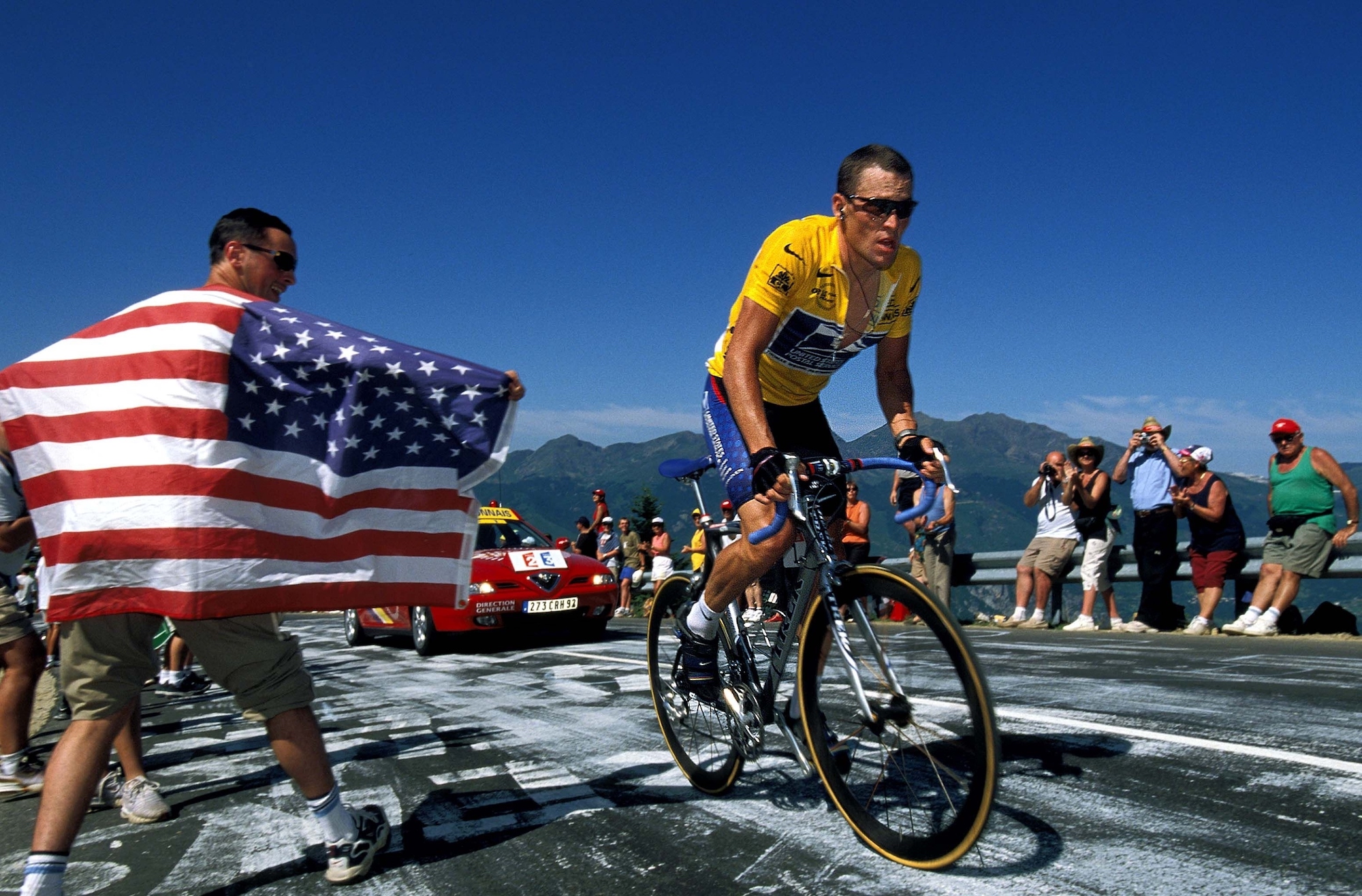 Former French Anti-Doping boss accuses Lance Armstrong of motor doping
Former French Anti-Doping boss accuses Lance Armstrong of motor dopingVerdy says he doesn't think Armstrong's performances were possible on just EPO alone
By Jonny Long Published
-
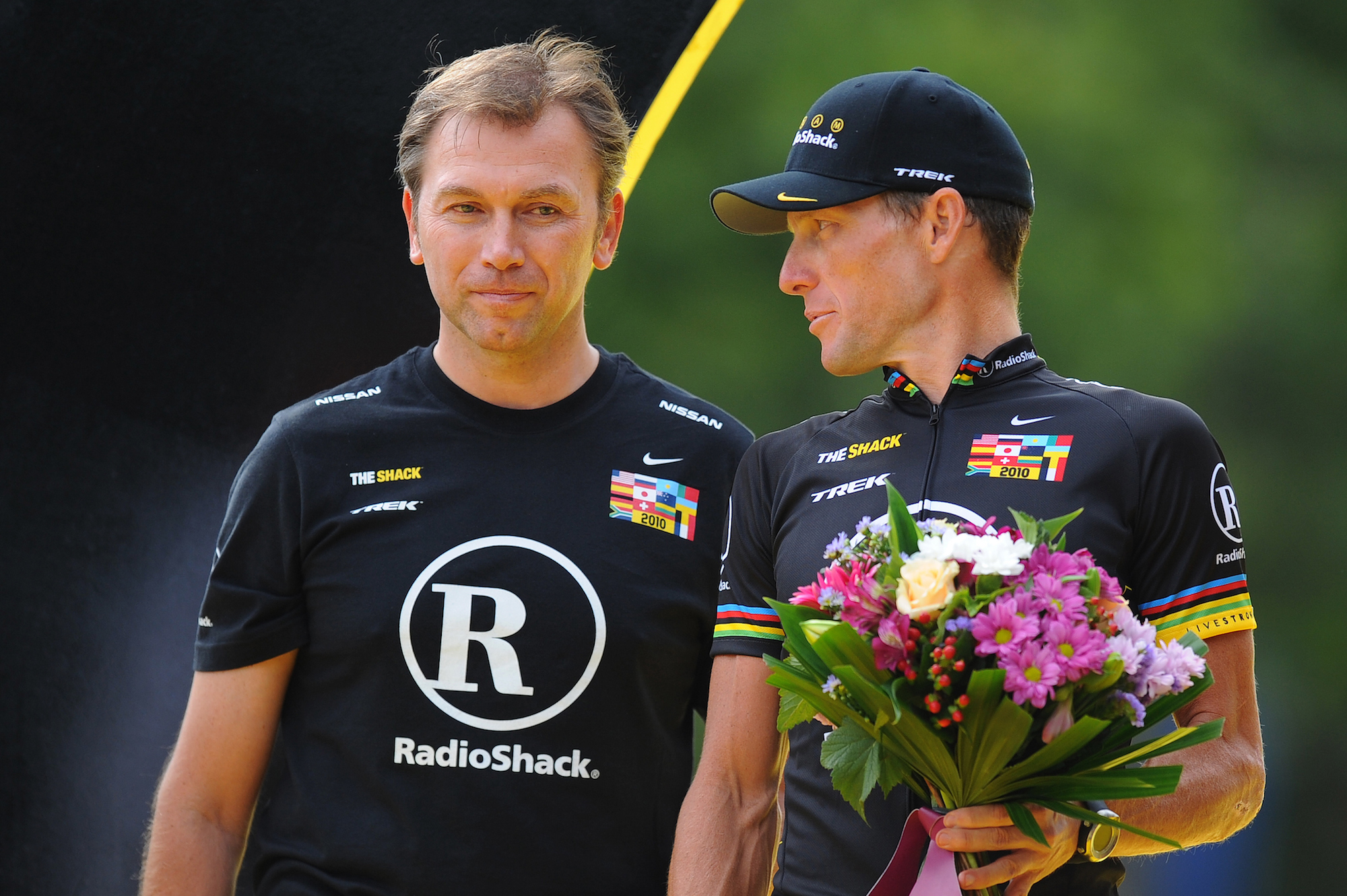 Lance Armstrong tips Mathieu van der Poel to win Tour of Flanders
Lance Armstrong tips Mathieu van der Poel to win Tour of FlandersLance Armstrong has tipped Mathieu van der Poel to win the Tour of Flanders this weekend.
By Alex Ballinger Published
-
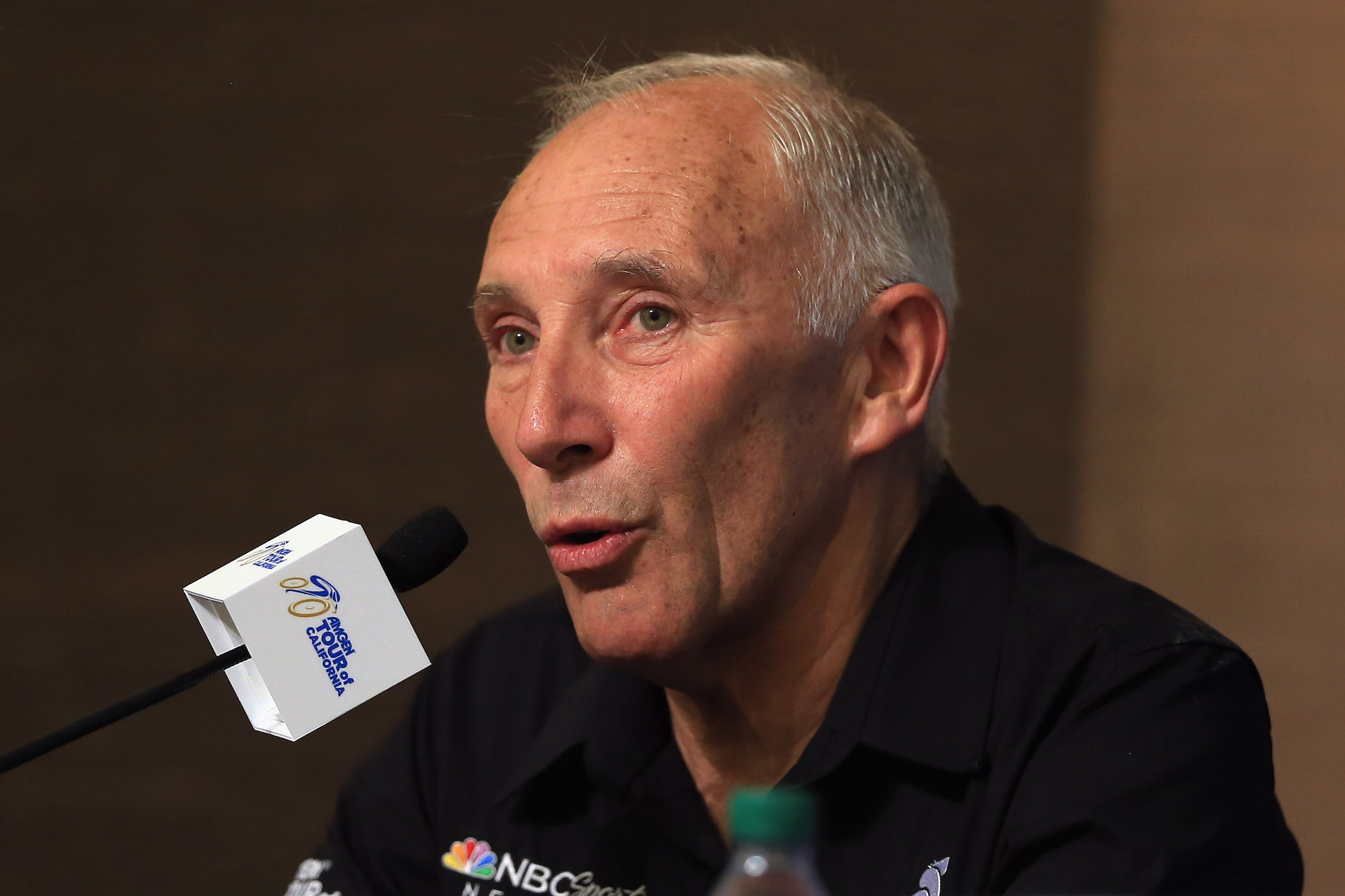 Lance Armstrong could have won without the drugs, says Phil Liggett
Lance Armstrong could have won without the drugs, says Phil LiggettLance Armstrong would have won the Tour de France with doping, according to legendary cycling commentator Phil Liggett.
By Alex Ballinger Published
-
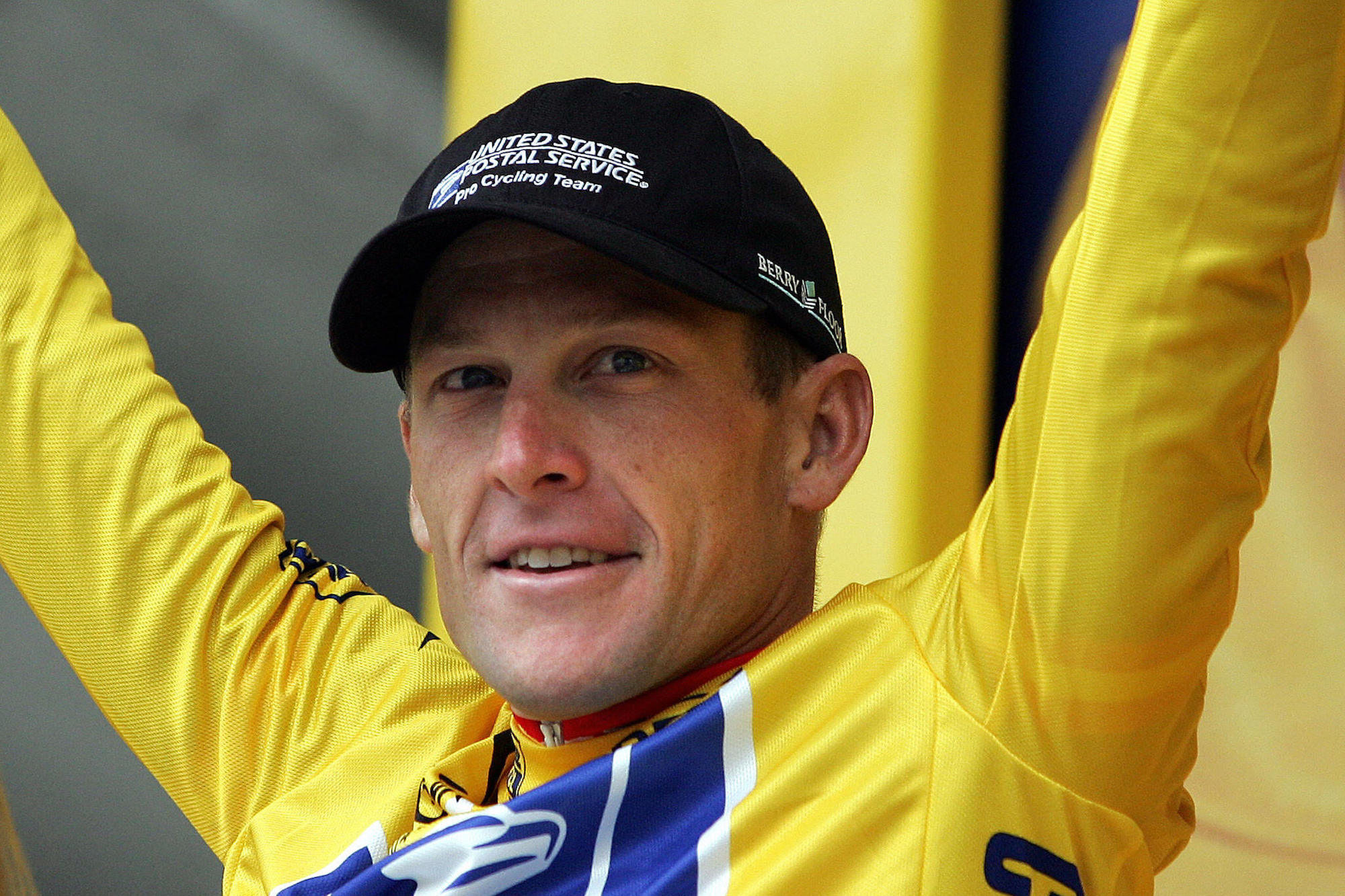 Lance Armstrong would have been the best of his generation even without doping, claims Johan Bruyneel
Lance Armstrong would have been the best of his generation even without doping, claims Johan BruyneelLance Armstrong would have been the strongest rider of his generation even without doping, Johan Brunyeel has claimed.
By Alex Ballinger Published
-
 Johan Bruyneel says he won't watch the Lance Armstrong documentary as he 'already knows what happened'
Johan Bruyneel says he won't watch the Lance Armstrong documentary as he 'already knows what happened'The former US Postal Service boss is currently serving a lifetime ban from cycling
By Jonny Long Published
-
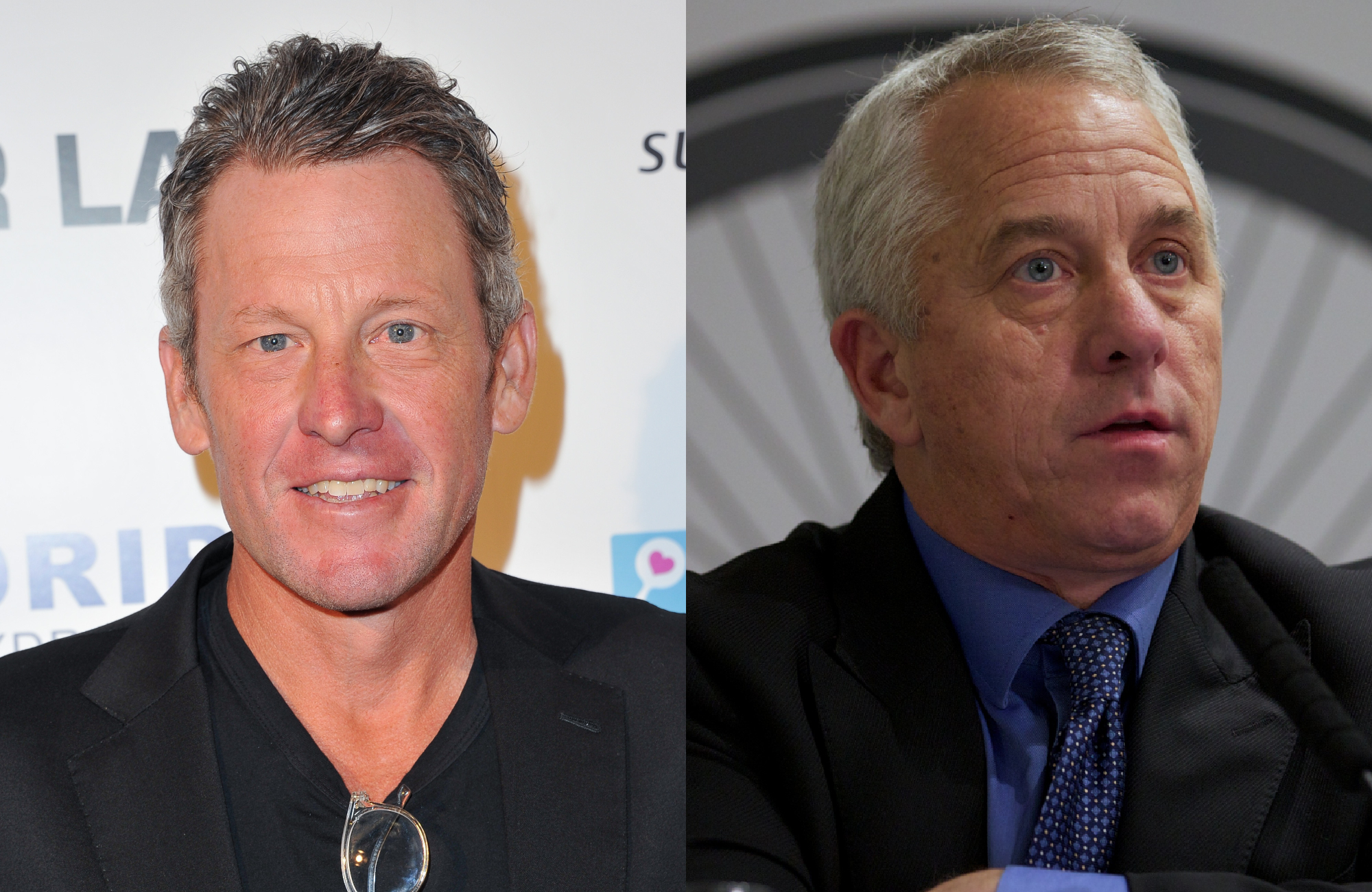 Lance Armstrong says he didn't like the Greg LeMond part of the ESPN documentary
Lance Armstrong says he didn't like the Greg LeMond part of the ESPN documentary'There are still very specific things that I think still upset him,' said the film's director
By Jonny Long Published